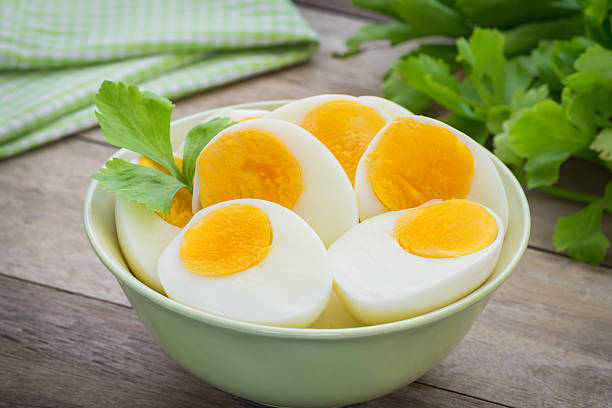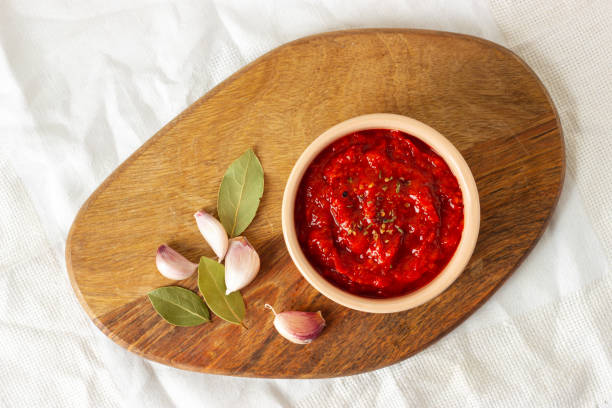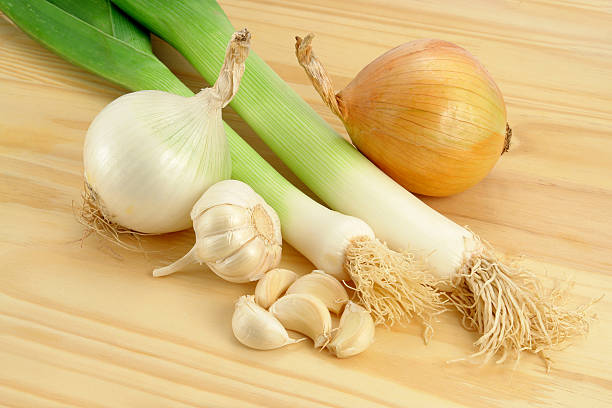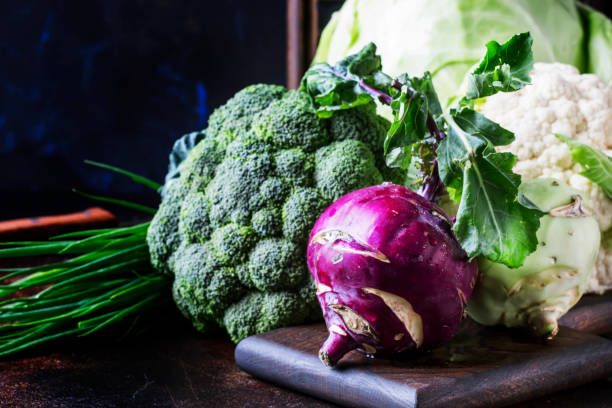Welcome to Fitness Deciphers…!!!
This is the most comprehensive list of foods rich in sulfur.
Here, we will list down the foods that you should include in your diet to get the optimal amount of sulfur.
In the era of fast foods and junk foods, it has become very difficult to get a sufficient amount of vitamins and minerals.
The deficiency of such vitamins and minerals has become the major cause of lots of diseases. And unluckily, sulfur is also not the exception to this list.
Sulfur is present in a variety of foods but modern food processing and agriculture practices have significantly reduced the dietary intake of sulfur.
Sulfur is one of the important minerals that your body needs to work properly.

Despite being the third most abundant mineral after calcium and phosphorus in the human body, we generally don’t focus on sulfur intake.
So, it is very important for us to know the importance of sulfur and its sources.
In this article, we will first discuss the importance of sulfur and then we will discuss the foods rich in sulfur.
Table of Contents
1. Importance of Sulfur for Human Health.
Before we start consuming sulfur-rich foods, it is very important to understand the importance of sulfur.
Here are some of the importance of sulfur.
1) Important for Connective Tissues
Connective tissues such as ligaments, skin, and tendons depend on sulfur for cross-linking. Highly sulfonated proteins such as ECM (Extra Cellular Matrix) protein provide strength and also help in moisture retention.
2) Beneficial for the Liver
Sulfur is very important when it comes to liver health because it is an essential component of phase 2 detoxification of the liver.
It is also a major component of glutathione which is produced by the liver and has antioxidant properties. Which protects us from free radical damages.
3) It may Provide Relief in Oxidative Stress
Though it needs more research, there is little evidence that shows that sulfur may help in oxidative stress.
What is oxidative stress?
It is the imbalance between the production of free radicals and reactive metabolites which also tends to affect the inflammatory pathways.
Oxidative stress can also damage the cellular structure, cellular function, and activity. And in a long time, it can also result in inflammation and cancer.
Sulfur is believed to balance this oxidative stress and protect us from inflammation and cancer.
4) It is a Natural Antioxidant
I don’t want to bore you with some medical data but research shows that sulfur has antioxidant properties. It can also repair exercise-induced muscle damage and boost muscle recovery.
5) Lowers Alcohol Cravings
It is generally found in alcohol-addicted people who tend to suffer from a sulfur deficiency. It is also found that intaking the optimal levels of sulfur can reduce alcohol cravings.
Related:
Other health benefits of sulfur,
- Helps to heal wounds
- Used in dermatological issues such as skin appearance, acne, etc
- It is a free radical scavenger
- Regulates gene expression
- Helps in protein synthesis and protein stabilization
- DNA methylation and repair
- Ensures a good enzyme functionality
- Improves the quality of skin and fingernails
- Metabolizing foods

2. Recommended Daily Intake of Sulfur.
There is no recommended dietary intake for sulfur.
But there are recommended daily intake of sulfur-containing amino acids (SAA). For example, intake of the essential sulfur amino acid methionine and cysteine is 14 mg/kg BW.
This daily recommendation also depends on various factors.
But here we will discuss some foods rich in sulfur that will help you to maintain the optimal levels of sulfur in your body.
3. How Sulfur is Generally Consumed?
Sulfer is generally consumed in the form of sulfur-containing amino acids which are also known as SAA.
Methionine, cysteine, and taurine are examples of sulfur-containing amino acids.
Methionine can’t be synthesized by the body so we have to depend on external food sources to consume it. Cysteine can be produced by the body.
Glutathione is also a great source of sulfur which is produced by the liver. It is generally found in fruits and vegetables.
If you intake these three amino acids, your body will not lack sulfur.
Now, let’s discuss foods rich in sulfur.
4. 16 Best Foods Rich in Sulfur
1) Eggs
Eggs are very rich in sulfur. It is the hydrogen sulfide in the eggs that makes rotten eggs so smelly.
The eggs contain methionine which is a sulfur-rich amino acid. As mentioned above, methionine can’t be produced by the body so you have to consume it from an external source.
You can consume boiled, poached, or scrambled eggs. You can also eat an omelet. But if you are on a weight loss diet then try to use less oil.
Do you know, egg whites contain the highest amount of sulfur-rich amino acids (SAA)!
2) Garlic
Garlic is rich in organosulfur which makes it one of the best foods rich in sulfur. You should increase the use of garlic in your food.
It is also recommended to eat 2-3 pieces of raw garlic on empty stomach in the morning. This practice prevents and protects us from many heart diseases.
If you are not comfortable eating them raw, you can eat garlic pickles. In India, people eat garlic chutney. You can also add pieces of garlic to your tomato soup or any other soup.
Here, I would like to mention that the sulfur content in the garlic depends on the soil from where they are brought.
3) Allium Vegetables
Allium Vegetables are also a good source of dietary sulfur. They contain sulfur in various forms such as sulfides and sulfoxide.
Garlic, leeks, onions, scallions, and shallots are the members of allium vegetables.
4) Whole grains
Whole grains contain sulfur in the form of thiamin (vitamin B1). Just like methionine, thiamin also can’t be produced by the body and have to be consumed externally.
5) Meat
Red and white meats are rich sources of sulfur. They are high in cysteine and methionine which are sulfur-rich amino acids.
To intake a good amount of sulfur, you should consume liver or organ meat more.
A single serving of turkey breast contains 7102 mg of methionine and 2442 mg of cystine. (source: University of Hawaii)
6) Cruciferous vegetables
Generally, cruciferous vegetables are considered foods that are high in dietary fiber but they are also very much rich in sulfur.
They are rich in sulforaphane which is a substance that protects us from cancer and DNA damage.
Cabbage, kale, broccoli, cauliflower, arugula, radish, etc are respected members of cruciferous vegetables.
7) Currants, Peaches, and Raspberry
Though sulfur is found in many fruits, these three fruits contain a high amount of sulfur. They are also loaded with many other nutrients.
Include these sulfur-rich foods in your diet to get the optimal amount of sulfur.
8) Milk, Cheese, and Cream
Milk especially cow’s milk is highly rich in glutathione and other sulfur-rich amino acids (SAA).
Cheese, cream, and sour cream also contain sulfur in sufficient amounts.
One cup of diced swiss cheese contains 1035 mg of methionine and 383 mg of cystine. (Source: University of Hawaii)
9) Some Dry Fruits
Dry fruits like apricot, raisins, figs and dates are foods rich in sulfur. These foods are highly loaded with sulfur.
Dried peaches are also very rich in dietary sulfur.
10) Nuts and Seeds
Nuts like peanuts, brazil nuts, and walnuts are also good sources of sulfur. Brazil nuts contain 1495 mg of methionine and 407 mg of cystine.
Seeds like sunflowers seeds and flax seeds are also high in sulfur. Eating a handful of sunflower seeds can prevent sulfur deficiency.
11) Legumes
Legumes are low in fat and high in protein which makes them a perfect diet for gym-goers. But they are also rich in sulfur.
Legumes such as black beans, kidney beans, soybeans, and split peas are the best sources of sulfur.
12) Seafood
Tuna, crabs, shrimp, and lobsters are high in sulfur.
According to the University of Hawaii, one cup of canned tuna contains 1259 mg of methionine and 456 mg of cystine.
13) Banana, watermelon, and coconut
Fruits like bananas, watermelon, and coconut are also rich in sulfur amounts. Avoid any foods or drinks before or after 45 minutes of eating watermelon.
Also, try to avoid any of these fruits after sunset.
14) Tea, Coffee, and chocolates
They are also rich in sulfur.
15) Wines
Wines are generally made from grapes and hopes which are good sources of sulfur. Wines are also loaded with hidden sulfur.
What is hidden sulfur?
Beverages are sometimes added with sulfites to increase their shelf life. Due to this they also contain sulfur in them. Such a type of sulfur is called hidden sulfur.
Generally, coconut-based products, dried fruits, and wines are rich sources of hidden sulfur.
16) Certain Beverages
Beverages like coconut milk, tomato juice, and grape juice are also rich in sulfur.
17) Other Foods Rich in Sulfur
- Dark leafy greens
- Cabbage
- Onions (Try to eat them in the salad (raw))
- Brussels sprout
- Leeks
- Horseradish
- Mustard leaves
- Red bell peppers
- Watercress
- Shallots
- Spinach
- Rocket
- Sweet potatoes
- Russet potatoes
These are some foods that are highly rich in sulfur. You can include them in your diet to maintain the optimal levels of sulfur in your body.
5. Are there any supplements to increase sulfur intake?
Yes, there are many supplements available in the market which can help you boost your sulfur intake.
They are,
– Alpha Lipoic Acid
– Chondroitin sulfate
– Epsom salt baths
– Glucosamine sulfate
– Glutathione
– Milk thistle
-N-Acetyl Cysteine
– Chlorella
– DMSA
– MSM
These all supplements can help you increase your sulfur intake.
6. Should I take Supplements?
I would only suggest taking sulfur supplements if you are highly sulfur deficient.
Otherwise, you should only consume foods rich in sulfur.
Here, I would like to complete this conversation.
Now, let me answer the most common questions.
FAQs
1) How much sulfur should I consume daily?
There is no recommended daily limit. You just fulfill your daily protein need because we get most of the sulfur from sulfur-rich amino acids that form the protein in the body.
2) Can onion salad help me get more sulfur?
Including onion salad, is an excellent way to boost your sulfur intake because onions are rich in sulfur.
3) Is turmeric high in sulfur?
No, we can’t say turmeric is high in sulfur but it contains sulfur in a lower amount. So it can also be used to increase sulfur intake.
4) Is coffee high in sulfur?
Not high but it can raise the sulfur levels.
5) Is there any side effects of consuming more sulfur?
It is found that people who intake more sulfur tend to suffer from diarrhea and gut inflammation. (Source: Healthline.com)
6) What vegetables are high in sulfur?
Allium vegetables such as garlic, onion, leeks, scallions, and shallots and cruciferous vegetables such as kale, broccoli, cauliflower, etc are sulfur-rich vegetables.
Conclusion
Here, we have discussed the best foods rich in sulfur.
Include some of them in your diet to maintain the optimal levels of sulfur in your body.
You can ask me the question related to this article in the comment box. I would love to listen to them.
If you like this article, share it with your friends.
Thanks for reading…!!!





